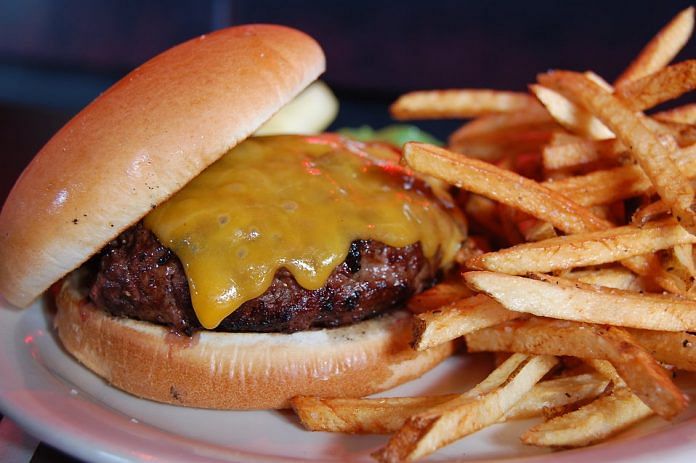Jaap Korteweg was brought up on meat. That’s what happens when you grow up surrounded by cows on a farm in Holland.
But the ninth-generation farmer has swapped slaughtering (and eating) animals for chopping up plants – and has grown an international business buoyed by the rising awareness that we could all help the planet by cutting down on our meat consumption.
On World Animal Day back in 2010, Korteweg founded the Vegetarian Butcher in the Hague, with a mission to make products from vegetables that look, taste and feel like real meat.
This week, the brand partnered with Burger King to supply the plant-based Rebel Whopper in 2,500 of its restaurants across 25 countries in Europe.
“I was hooked on the taste of meat and my idea was how we can produce meat without animals with the same taste, the same texture, the same experience,” he says.
Also read: Mock eggs & mock meat on the menu as IIT-Delhi seeks to collaborate with industries
Butchering perceptions
The company’s method of food production was developed with scientists from Wageningen University – and uses a fraction of the food needed to produce meat from an animal.
For every 1 kg of beef, almost 3 kg of human-edible feed is needed to feed the cow. So the Vegetarian Butcher just cuts out the middle-man (or cow in this case).
Korteweg says: “I was dreaming about a machine that we can use in place of animals – to produce meat from what we feed the animals. From the beans, the wheat, the peas that we put into the machine, we can produce a very tasty plant-based meat.”
The company, which was bought by Unilever in 2018, has won accolades and fans around the world. When Ferran Adrià, the former head chef of the three-Michelin-starred Spanish restaurant elBulli, tried the company’s flagship Vegan NOChicken Chunks (made with soy protein concentrate), in 2011, he enthused: “This is more tender than pork and juicier than chicken.”
Among the ingredients used in the company’s products are broad beans and bamboo fibre in the mc2 NOChicken Burger and onion and carrot powder in the Little Willies sausages, whose tongue-in-cheek name has caused a stir in UK supermarkets.
“People like meat,” says Korteweg. “But it’s not necessary to live without it, you can eat as much meat as you want, without the use of animals.”
Also read: Going vegan won’t save the planet, but neither will current meat practices
Growing appetite
In the past decade, the global appetite for meat substitutes has grown, as research has revealed the impact the meat industry has on the environment.
Between 2018 and 2026, it’s forecast the global market for plant-based meat will more than triple from $10.1 billion to $30.9 billion. It’s little wonder fast-food restaurants are getting in on the trend.
According to the UN’s Food and Agriculture Organization, emissions from global livestock account for 14.5% of anthropogenic (from human activity) greenhouse gases.
A recent warning from more than 11,000 scientists listed the scale of per capita meat production as one of the factors that must be addressed to “avoid untold suffering due to the climate crisis”.
Towards flexitarianism
Produced sustainably, meat does play an important role in nutrition and supports livelihoods, particularly in rural and developing communities.
Earlier this year, the EAT-Lancet Commission published its “planetary health diet”, looking at how to feed a projected global population of 10 billion by 2050, without destroying the planet.
It advocated a shift towards “flexitarianism” rather than veganism, with a 50% reduction in red meat consumption, and noted:
“Many populations continue to face significant burdens of undernutrition and obtaining adequate quantities of micronutrients from plant source foods alone can be difficult.
“Given these considerations, the role of animal source foods in people’s diets must be carefully considered in each context and within local and regional realities.”
As Korteweg says: “No one needs to save the world on their own, but if everybody makes a small effort then we are all going to profit.”
This article was originally published in the World Economic Forum.
Also read: Beef burgers are problematic, not just for your health but also the climate




